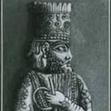Thomas Yaeger's Blog, page 14
February 17, 2018
Reading Thomas Yaeger
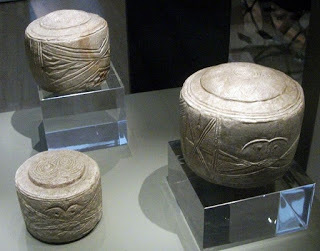
Recently I removed a number of papers which were freely available on the website Academia.edu. I did this because the site has become less and less useful, as it transitions to something offering 'premium' services. I also took down the description and metadata for other papers, many of which are chapters in the books listed below.
I saved the descriptions of my three books, however, and together these form a concise overview of what I have written and published so far on historical and philos...
Published on February 17, 2018 11:49
February 16, 2018
Pythagorean Triples and the Generation of Space
The traditional formulation of the theorem of Pythagoras is that the square on the hypotenuse of a right angled triangle is equal to the sum of the squares on the other two sides. This is the Greek formulation, but we know that some of the properties of Pythagorean triangles were known in earlier cultures, such as in Babylonia.
The triangles of most interest were those constructed using integral values, such as the 3,4,5 triangle. These values were commensurable, and not irrational.
If we cons...
Published on February 16, 2018 13:52
February 6, 2018
Free access to 'The Sacred History of Being' in your Local Library
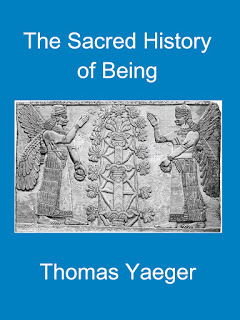
The Sacred History of Being is now available free to libraries, and library distributors (as of February 6, 2018)
What this means is that libraries can make as many copies as they like available to library users.
For the past few months copies have been accessible free of charge in the six legal deposit libraries in Britain and Ireland (British Library, London, National Library of Scotland, Edinburgh, etc). These copies can only be accessed singly, and in the library reading room. This ch...
Published on February 06, 2018 08:27
January 12, 2018
Our Lady Underground: Aporia and Religious Thought
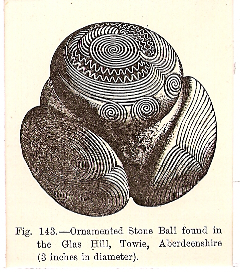
This is a short notice of a forthcoming article.
The article argues that the outcome of philosophical debate in classical Athens was often thought to have implications for our knowledge of the nature of the reality which we inhabit, and consequently, for the meaning of religion. Apparent failure to reach a satisfactory conclusion to an argument, was sometimes a conclusion which provided insight into the complex nature of reality.
Looked at in this way, philosophical argument about difficult an...
Published on January 12, 2018 06:20
December 27, 2017
Reviewing Richard Dawkins' 'The God Delusion' - Anthony Flew
Anthony Flew's review of The God Delusion (2008) suggests that Dawkins has become a secular bigot. Flew was a influential philosophical atheist. Yet in 2007, when he was eighty-four years old, he published There is a God , in which he writes about how he came to believe in a Creator God on the basis of both scientific evidence and philosophical argument. In his book, he discusses his belief that it is possible for an omnipotent being to choose to reveal himself to human beings, or to act...
Published on December 27, 2017 04:27
December 26, 2017
Is Richard Dawkins a Closet Deist?

Since the publication of The God Delusion in 2006, those of us who are interested in the history of ideas, both long and short, have got used to a more aggressive and even militant form of atheistic response to discussions of the concept of God, and the meaning of the Divine. Dawkins book is the main reason for this change.
‘The God Delusion’ is not a scholarly treatise on belief and disbelief concerning the existence or the reality of God, and the arguments for and against. Nor does it prete...
Published on December 26, 2017 05:32
December 10, 2017
Thought in Late Neolithic and Early Bronze Age Britain
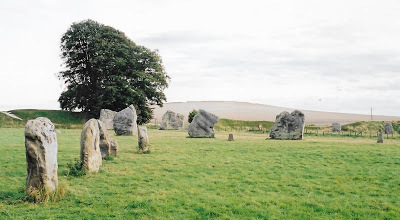
For the past three weeks or so I've been writing a paper on aspects of mind during the late Neolithic and the early Bronze Age in Britain, during the period when most of the megalithic circles were built. I wrote a paper in 2016 (Stone Circles, Phenomenology, and the Neolithic Mind) which explored the possibility that we might have enough information from the structures to infer thought and motive of their builders.
In that article I wrote:
The main objection of the archaeological c...
Published on December 10, 2017 10:05
Patterns of thought in Late Neolithic and Early Bronze Age Britain

For the past three weeks or so I've been writing a paper on aspects of mind during the late Neolithic and the early Bronze Age in Britain, during the period when most of the megalithic circles were built. I wrote a paper in 2016 (Stone Circles, Phenomenology, and the Neolithic Mind) which explored the possibility that we might have enough information from the structures to infer thought and motive of their builders.
In that article I wrote:
The main objection of the archaeological c...
Published on December 10, 2017 10:05
November 15, 2017
Philosophical Thought in the Neolithic (and why we cannot see it)
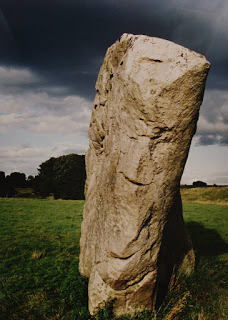
While responding to a mail from the managing editor of a scholarly magazine, who I'd pointed in the direction of a couple of articles on my blog, I found myself condensing my project into the compass of just four paragraphs. This covers both what I am doing, and why. I reproduce them here:
Years ago I read Adolf Erman's collection of Egyptian Literature in English translation. One text in particular made me sit up, since it involved the use of concepts I associated with classical Greece....
Published on November 15, 2017 08:10
October 25, 2017
'The Sacred History of Being' is free to download in November!
The Sacred History of Being will be available free from Smashwords during the month of November 2017, to mark the second anniversary of its publication in 2015. Use the coupon available on the Smashwords page for the book. The coupon is available for use from the 25th of October.
Coupon Code: TT95F
:
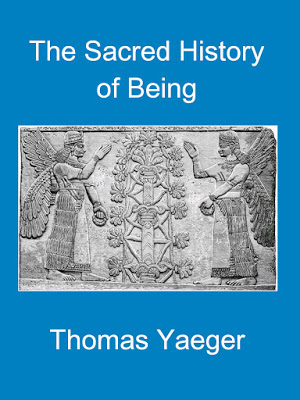
"All about how history is built by inclusion and omission. Even written histories have to hang together like a good story." - Nick Zacharewicz @NickSCZach
The Subject
The Sacred History of...
Published on October 25, 2017 05:55

